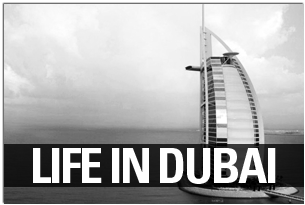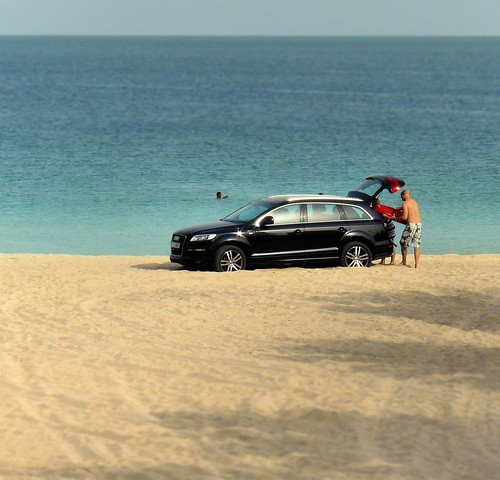Dubai is strategically located between the developed western world and the Indian sub-continent, and is a hub for many global businesses and expats. For more than two decades, Dubai has been a go-to destination for Indian professionals. A majority of them were either blue-collar workers or professionals employed in traditional industries such as banking, retail, finance, construction, etc.
However, times are changing. Hundreds of new-age businesses including eCommerce companies, tech startups, online media agencies, etc are coming up in Dubai, and many major corporations have setup offices that handle modern aspects of their businesses, such as technology and digital marketing.
So how is life in Dubai for Indians? Here are 22 things that you should know before moving to Dubai:
1) Tax Laws: There is no income tax in Dubai. What you earn is what you take home.
2) Money Transfer: Transferring money from Dubai to India does not attract any income tax. The only thing you have to pay is the transfer fee, and that too can be taken care of, depending on your bank.
3) Passport: Your passport remains with you. Unlike the 80s & 90s, employers DO NOT confiscate your passport.
4) Visa Process: The visa process for Dubai is quite simple and hassle-free. We can assure you, it will be better than your experience at the Indian Passport office  In case you are married or want to take dependents (wife, kids, parents, etc), you will have to apply for their visas as well. If the required documents are available with you, the visa process won't be much of a hassle.
In case you are married or want to take dependents (wife, kids, parents, etc), you will have to apply for their visas as well. If the required documents are available with you, the visa process won't be much of a hassle.
 In case you are married or want to take dependents (wife, kids, parents, etc), you will have to apply for their visas as well. If the required documents are available with you, the visa process won't be much of a hassle.
In case you are married or want to take dependents (wife, kids, parents, etc), you will have to apply for their visas as well. If the required documents are available with you, the visa process won't be much of a hassle.
5) Distance By Air: Traveling to Dubai is as good as traveling from Mumbai to Kolkata or Delhi to Chennai! In case of an emergency, you can be back in India in 2.5 to 3 hrs. And yes, most companies give one return-ticket in a year to your home town (two for senior level positions).
6) Expenses: For someone going alone, it is possible to live an upper-middle class life for AED 6500. This includes cost for rent, petrol, car, water, electricity, phone, internet, food, and groceries. In case of family/dependents, you can add AED 2000 for each person. Labor is cheap and you can hire a maid too for household chores.
7) Housing: There are many good residential areas in Dubai, especially Al Karama, which houses a lot of Indians. Depending on the area in Dubai, a 1BHK can be rented anywhere between 3000 AED to 5000 AED, a 2BHK can be rented between 5000 AED to 8000 AED, and a 3BHK can be rented between 8000 AED to 12000 AED. You can also buy property in Dubai, and it could be a good place to invest.
8) Schooling: Dubai has many good schools that offer quality education and have excellent facilities. Some schools also offer Indian curricula.
9) Clothing: Dubai is quite modern amongst the Emirates and females are not expected to wear a burqa (unless visiting a mosque). In fact, many female expats and quite a few local ones are dressed in modern outfits such as jeans, skirts, t-shirts, and even singlets.
10) Entertainment: Dubai has a vibrant nightlife and options include clubs, lounges, high-end restaurants, and theatres showing latest Hollywood/Bollywood flicks. It is a myth that alcohol is banned in Dubai. While there are practically no wine shops, you can go to a club/hotel/restaurant for some beer, wine, vodka, etc. Dubai is also known for its no-nonsense attitude towards narcotics, so it is advisable not to do anything naughty in that regard or you might land up in big trouble.
11) Language: Dubai has a huge number of expats from the sub-continent, which means there is no language barrier, especially for dependents. For Indians, Dubai seems home away from home, since one can easily find people who speak English, Hindi, Gujarati, Malayalam, etc.
12) Commuting: Dubai has a great infrastructure and good connectivity with the other Emirates. Many Indian expats who work in Dubai prefer to stay in Sharjah (relatively cheaper rents) and then enjoy a scenic commute. In addition, the public transport is quite reliable. The Dubai Metro is the world's longest fully automated metro network (75km), and the bus service is very good. Carpooling is quite trendy too in Dubai, and once in a while you can hail a cab (a slightly expensive option).
13) Cars: Dubai is a great city to own cars, thanks to awesome roads and ample parking spaces (in most areas). It is easy to get a decent pre-owned SUV for around 500 AED per month. In fact, you can even get an entry-level BMW or a sports car, if you are earning more than 8000 AED. And yes, petrol is quite cheap.
14) Food Options: If culture is equal to food, then Dubai can be called the apt melting pot! Probably one of the only places that offers affordable food from all corners of the globes, Dubai allows you to enjoy all major cuisines. Nearly all F&B chains and QSR (quick service restaurants) are present in Dubai, right from McDonalds, Pizza Hut, Starbucks, etc to Indian brands and outlets such as Bikaner, Makhan Bhogs, Udipis (Sukh Sagar), Tibbs, etc.
15) Security: Dubai is one of the safest cities in the world, and is much safer than say, Mumbai or Bangalore. A bunch of girls can easily go out in the night without worrying a lot about safety. Dubai is one of those cities that respects women.
16) Religion: In addition to some beautiful mosques, there are churches in Dubai too. It also has a Hindu temple and a gurudwara. Being highly cosmopolitan, people from all religions live cordially.
17) People: A majority of the expats are from the sub-continent (India, Pakistan, and Bangladesh) and GCC countries. The locals, called as Emiratis, are a friendly bunch and usually prefer to stay to themselves. But they do interact with expats professionally.
18) Tourist Places: Dubai has many tourist places, and offers you a varied experience, right from desert safaris, water parks, beaches, art, architecture, etc. Amongst other things, it has the tallest building in the world, the largest shopping centre, the tallest residential building, the tallest hotel, and the world's largest indoor ski resort!
19) Shopping: Dubai has many malls, including one of the world's largest (a bigger one is under construction). There are many supermarkets too that offer an international experience whether you are buying groceries or home furnishings. It is also home to Dragon Mart, which is a mall in the shape of a dragon with nearly 4000 shops offering a variety of inexpensive Chinese products.
20) Medical Expenses: Employers in Dubai have to compulsorily offer medical insurance. Also, the last few years has seen great development in medical infrastructure in Dubai.
21) Holidays: Most companies follow the UAE holiday list, and work on Sundays and have weekly offs on Friday and Saturday. Depending on the company, you can adjust your leaves (expats are entitled 30 in a year) for certain holidays. Unlike India, where there is a culture of staying late at work, most people in Dubai are in the office for eight to nine hours only.
22) Fines: The big downside about Dubai is the fines. Littering or spitting can get you into trouble, and Dubai is quite apt when it comes to implementation of such laws. That is what keeps the city clean and safe!












